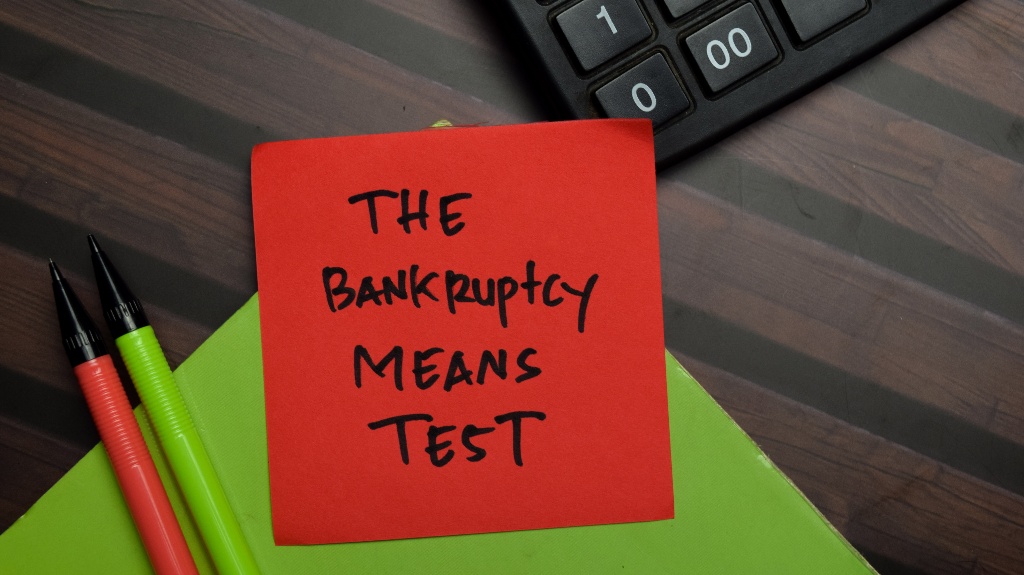What Is the Means Test for Bankruptcy in North Carolina?
When you’re buried in bills, dodging collection calls, or lying awake at night wondering how you’ll make it to next month, the idea of bankruptcy can feel overwhelming. Chapter 7 may sound like a fresh start, but then you hear about something called the means test, and it’s easy to feel lost again.
Take a breath. The means test isn’t a judgment. It’s simply a way to figure out whether you qualify for Chapter 7 based on your income, expenses, and financial situation. It helps the court understand whether you’re truly unable to repay your debts or if a repayment plan through Chapter 13 might be more appropriate.
So, how does it work, and what should you expect? In the guide below, we will go through it together.
Why the Means Test Exists
Congress added the means test in 2005 as part of the Bankruptcy Abuse Prevention and Consumer Protection Act (BAPCPA). The goal was to prevent individuals with higher incomes from abusing Chapter 7 by discharging debts they could reasonably afford to repay. The means test helps distinguish between debtors who truly can’t pay and those who may have the means to repay some of what they owe.
Step 1: Compare Your Income to the Median
The first part of the test is straightforward. You’ll compare your household income to the median income for a household of your size in North Carolina. These figures are updated regularly by the U.S. Census Bureau and the Department of Justice.
As of now (mid-2025), if your income is below the median, you automatically pass the means test. You’re likely eligible to file Chapter 7, assuming you meet other requirements. If your income is above the median, however, the test doesn’t end there.
Step 2: Calculate Disposable Income
Take a detailed look at your monthly expenses, including items such as rent, utilities, transportation, food, insurance, and childcare. The goal here is to determine how much disposable income you have left over after covering your necessary living costs.
But here’s the catch: not all of your actual expenses may count. The test uses a mix of actual and IRS-standardized expenses, which can feel confusing or even unfair. That’s why many people choose to work with a bankruptcy attorney to guide them through this process.
If, after subtracting allowable expenses, your disposable income is too high, you may be steered toward filing Chapter 13 instead. That doesn’t mean you’re out of options. It simply means you may need to enter into a repayment plan rather than wiping debts clean immediately.
Special Considerations in North Carolina
While the means test is a federal formula, your location still plays a role. North Carolina’s cost of living, income medians, and allowable expenses all factor in.

For example, someone living in Greensboro may have a different financial profile than someone in Charlotte. Courts consider those regional variations when reviewing your case, which is one reason local legal guidance can be invaluable.
What If You “Fail” the Test?
Failing the means test doesn’t mean bankruptcy is off the table. It simply means Chapter 7 isn’t an option right now. You may still be eligible for Chapter 13, which involves repaying a portion of your debt over a three- to five-year period. While it’s not as quick as Chapter 7, Chapter 13 can still provide significant relief by stopping collections, halting foreclosures, and giving you a clear path forward.
Don’t Navigate This Alone
The means test can be confusing, frustrating, and full of gray areas. But you don’t have to go through it alone. At Stephen E. Robertson Law Office, we help North Carolinians make sense of bankruptcy and chart a path toward financial stability.
If you’re considering bankruptcy or want to explore your options, please reach out today to speak with our team and determine the next steps together.
